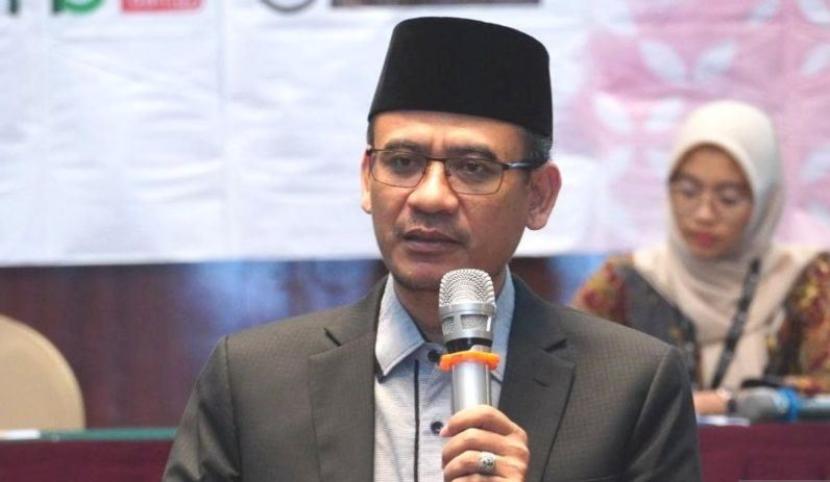REPUBLIKA.CO.ID, JAKARTA— Lecturer of UIN Walisongo Semarang, Prof. Syamsul Maarif says religious moderation is not a new school or heretics, but it is the natural nature of religion that can bridge the forms of social rigidity in society due to radicalization of thought and religion.
“Moderatism itself is not a new school or a heresy as alleged by many parties, it is the essence of religion itself that is at a point of equilibrium that is in the center of all individuals regardless of their background,” Syamsul said in a statement in Jakarta, Friday (22/12/2023).
Syamsul said that religious moderation is actually not new, but rather it is a natural nature of religion itself that encourages people to have a good relationship with others.
This moderate attitude in Islamic teachings, he said, is often referred to in religious teachings by the term wasathiyah, otherwise known as religious moderation, when referring to a more universal phrase.
According to him, a moderate attitude in religion proved to be a solver in the impasse of communication and consolidation between groups of people with diverse backgrounds.
Syamsul sees a perceived urgency and underlies the application of religious moderation. This concept is considered to be able to bridge all forms of social rigidity in society due to radicalization of thought and religion.
Where radicalism is constantly exhaled, parties that tend to favor violence as an option in achieving their goals.
“Those affected by radicalism and terrorism certainly want to destroy NKRI. This kind of group wants to destroy the social order that has been well awakened and based on local wisdom,” he explained.
Syamsul said that the foundation of the country, which has long been believed to be the result of the founding fathers and is based on the philosophy of the ancestors of the nation, so that basically Indonesia promotes harmony, love, care, and mutual respect to everyone without any specific restrictions.
Furthermore, he said moderatism or moderation is a harmonious way of seeing and prioritizing the peace between God's creatures.
The concept of religious moderation, Syamsul continued, is in fact within the corridors and provisions of religious law, and does not deviate in the least from God's provisions.
It can even be said that as people increasingly hold the principles of God's teachings, people will have a tawazun (wise and balanced), ta'adul (fair), and tasamuh (tolerant and respectful) outlook.
Because, he said, being a way of seeing unity and equality in the midst of diversity, moderatism became the way to understand that diversity is God's will. Religion teaches diversity to get to know/know each other.
At the same time, a moderate attitude becomes a force to return to Allah SWT. “Religious moderation is the most intelligent and prudent way to find common ground among different faiths,” said the academic, who wrote Radicalism and Terrorism: Perspectives on Islamic Education in 2020.
This attitude, says Syamsul, views that everyone, regardless of their differences in thinking, orientation, and way of seeing, ultimately returns to the same essence, which is to become a being of God who accepts the nature of his creation.


